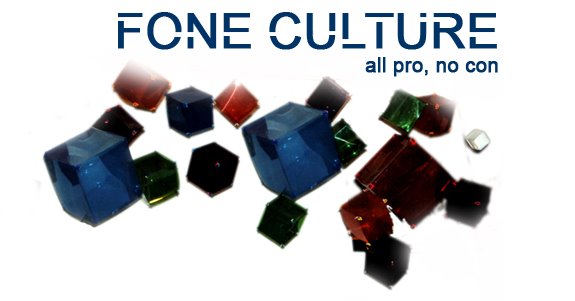
We're going on a good half decade now of rampant, synth-soaked '80s revival that's not showing any signs of slowing. Fine by me, as the 80s were the formative years of my romantic mentalism - the decade when I hardened from liquid chocolate into the cool Cadbury egg I am today.
As far as '80s nostalgia goes I like my moods a bit bleary and my keyboards way grainy. The first two tracks here - M83's "Skin of the Night" and "Freddie and the Trojan Horse" by The Radio Dept. - are the '80s in a trench coat. Theatrical and black-lipsticked.
Mondkopf's remix of Jamie Lidell's "Little Bit of Feel Good," which completely ignores the source material, and Modeselektor's "Edgar" tone down the gothic pout a bit and settle in for a wider view and some '80s droid kitsch. They're the kind of tracks that should be loudspeakered at Burning Man during the torching of surreally large effigies.
And the last couple are tried and true classics in my world: "Revista Moda" by Hexx and "Shadow of a Bomb (Instrumental Version)" by The Reflecting Skin. They're '80s in a way that's particular to me - burnt-blasted and bent for the stars, like Luke Skywalker's war-worn X-Wing. These never get old, never fail to softly electrocute me. I discovered them on a superb compilation by the Moodgadget label, a botique subsidiary of Ghostly International. They're under different aliases, but composed and produced by the same guy, Danny Scales.

If rumor serves, Scales as The Reflecting Skin is signed to Ghostly now and working on a full-length. I've had both of these pieces for over a year now, marinating in my ipod and growing digital goosebumps on its surface. Having absorbed them as well as streamed a few other pieces on The Reflecting Skin MySPace page, I'm putting down Scales as one of the few electronic artists today that I'll bother to love. He's up there with Clark, Plaid and Modeselektor to me, not for his programming prowess but for sheer prettiness - he may not be the most nimble toymaker in the miniature halls of glitchcraft, but the missing cleverness gets redirected into emotion concentrate.
M83 - Skin of the Night
The Radio Dept. - Freddie and the Trojan Horse
Mondkopf - remix of Jamie Lidell's "Little Bit of Feel Good"
Modeselektor - Edgar
Hexx - Revista Moda
The Reflecting Skin - Shadow of a Bomb








